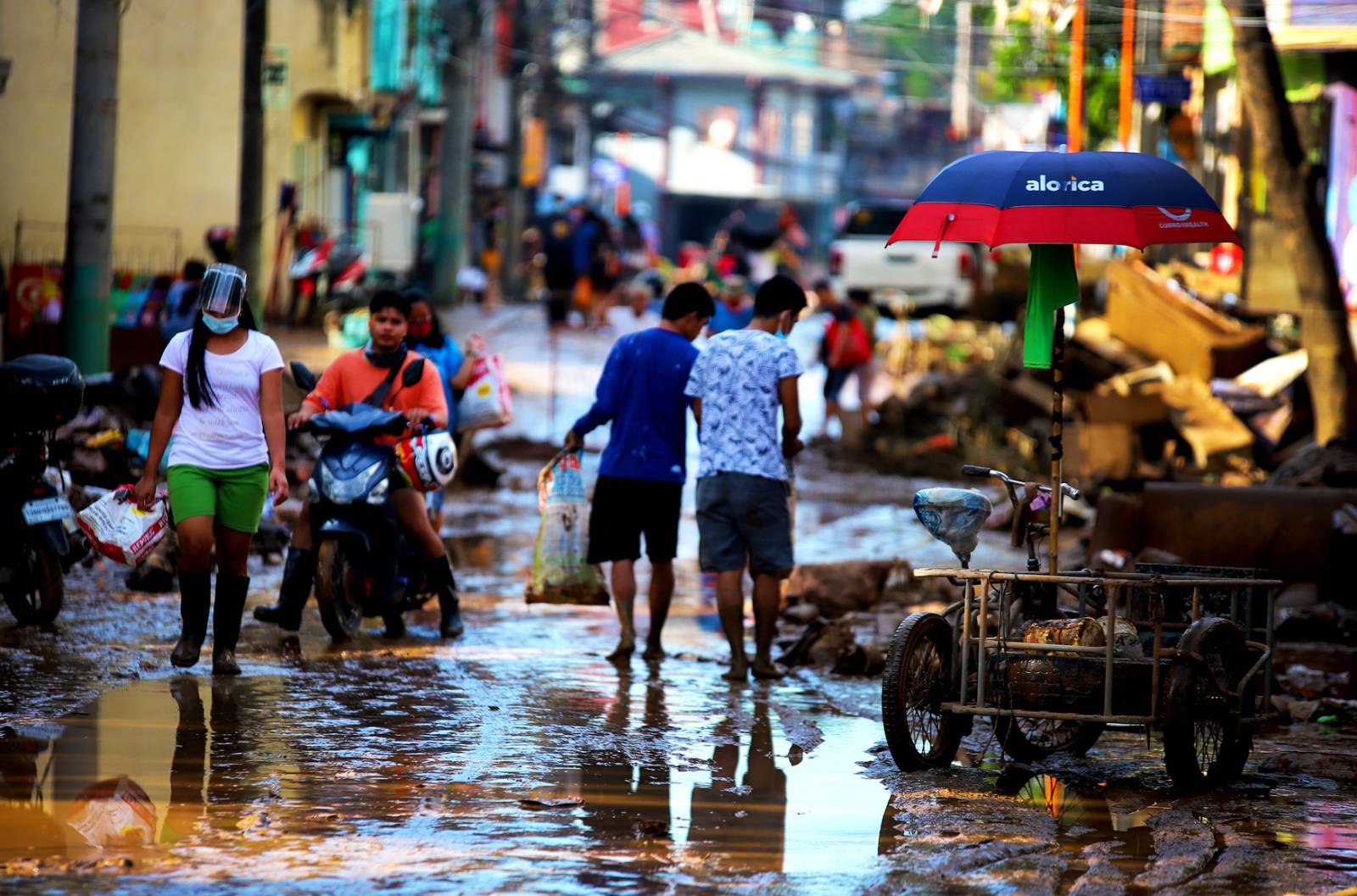
December 08, 2020 Tuesday

MANILA, 9 December 2020 — Following the massive loss and damage caused by recent typhoons that ravaged the greater part of the country, the Climate Change Commission (CCC) National Panel of Technical Experts (NPTE) stressed the need for more scientific studies on tropical cyclones and their link to the climate emergency to reduce impacts and address the climate emergency.
In their statement “Climate Change and the 2020 Tropical Cyclones,” the NPTE called for the conduct of more studies on the changing behavior of tropical cyclones, translation of scientific data on climate change and its impacts on actionable information that will be useful on the ground, and enhanced cooperation among the national government agencies (NGAs), local government units (LGUs), and the scientific community on the implementation of climate change adaptation (CCA) and disaster risk reduction (DRR) measures.
The NPTE, which is composed of the country’s foremost climate scientists, confirmed that the 2020 tropical cyclone season reveals certain characteristics that may have imprints of a changing climate. It noted that cyclones in 2020 have unusual but consistent attributes that were partially controlled by regional weather phenomena exhibiting unusual behavior this year.
Noting that only two to three weather disturbances are usually recorded during the months of October to November, the scientific advisory body said that Typhoon Quinta, Super Typhoon Rolly, Tropical Storm Siony, Tropical Depression Tonyo, and Typhoon Ulysses were “off-season” tropical cyclones and were likewise slightly higher in latitude compared to where tropical cyclones commonly enter during these months.
The NPTE, in particular, pointed out that the rapid tropical cyclone intensification in the case of Super Typhoon Rolly may have been influenced by the unusually high sea surface temperature consistent with a warming climate.
According to the scientific body, climate change adaptation and disaster risk reduction (CCA-DRR) will become an even bigger challenge for the country if natural hazards will be less predictable in the future.
“Climate change should not be used as the reason behind our inability to predict the weather and manage flooding but instead, it should challenge us to find ways of improving our forecasting accuracy, enhancing Early Warning Systems, and responding to floods accordingly to prevent the unnecessary loss of lives and damage to properties,” the NPTE stated.
The experts said that there is a need to initiate further studies on potential climate variability to improve the prediction of the track, timing, and intensity of tropical cyclones. They noted that the revision of the dam release protocols consider the changes in climate change projections and hydrologic characteristics,
Moreover, the experts highlighted the need for scientists and professional communicators to work together in packaging scientific information into timely, accurate, and actionable warnings understood by all stakeholders.
Lastly, the experts urged NGAS and LGUs to constantly seek the advice of mandated scientific advisory bodies when planning and implementing CCA programs and DRR interventions in all types of development plans.
Climate Change Commission Vice Chairperson Emmanuel M. De Guzman said that the recommendations of the NPTE support the policy advocacy of the Commission for a whole-of-society approach in addressing the prevailing climate emergency.
“To survive and thrive in this era of climate change, we must heed the science and let it inform national and local development planning. In line with this, the Climate Change Commission has adopted a National Climate Risk Management Framework which provides direction and guidance to national government agencies, local government units, academe, and other key stakeholders in undertaking more comprehensive national and local risk assessments and formulating risk management strategies and interventions,” he said.
De Guzman also said that the Commission shall continue to promote the value of science informing policy and practice in the context of climate action. “Our goal is to bring our experts closer to our leaders and local communities to promote broader multi-stakeholder participation and to accelerate the mainstreaming of climate change mitigation and adaptation in national and local policy and planning processes,” he said.
Earlier this year, the NPTE submitted a resolution to the CCC urging the declaration of the climate emergency. The said resolution also urged the government to mobilize its people, institutions, and resources to identify cities and municipalities that are most at risk from the changing climate.